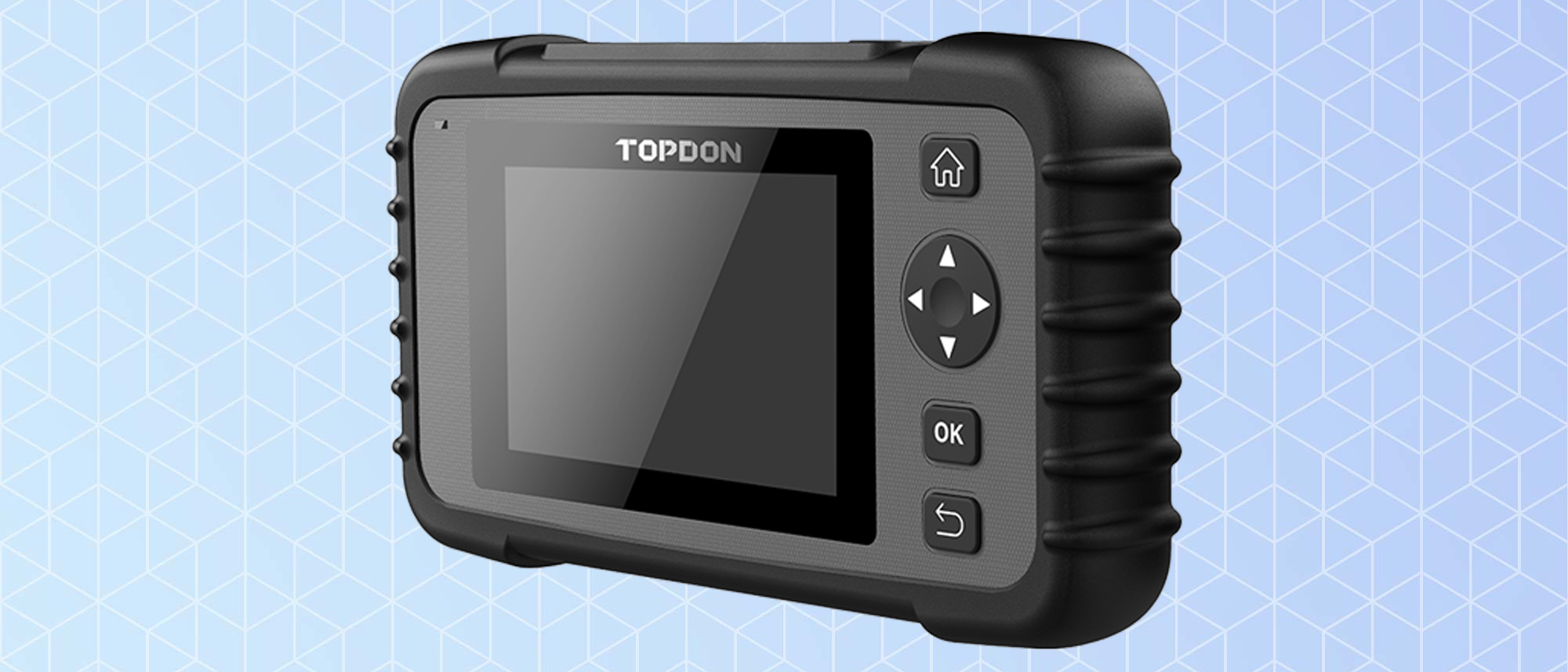Tom's Guide Verdict
One of the most capable OBD-II scanners available, the Topdon ArtiDiag500 has a large color touchscreen, Wi-Fi and the ability to dig deep into a vehicle's operations. It deserves to be in your toolbox.
Pros
- +
Excellent array of diagnostic tests
- +
Large color touchscreen
- +
Wi-Fi connectivity
- +
Rugged design with soft edges
Cons
- -
Big and heavy
- -
Short cable
- -
Cumbersome to hold
- -
Doesn't fit in case
Why you can trust Tom's Guide
Size: 9.1 x 4.9 x 1.4 inches
Weight: 1.6 pounds
Live data: Yes
Display type and size: Color touchscreen, 5-inch
Number of keys: 4
Bluetooth & app: No
Handheld: Yes
Warranty: 2 years
One of the best OBD-II automotive diagnostic scanners, and one that straddles the line between amateur and professional users, the Topdon ArtiDiag500 not only has a large color touchscreen and Wi-Fi capabilities but also includes an automotive health report and can turn off the "change oil" light.
The ArtiDiag 500 is big and heavy, and its cable is too short. Still, it just might be the best $170 a car owner can spend on a diagnostic tool. It's one of our two Editor's Choice picks for best OBD-II scanners.
Read on for the rest of our Topdon ArtiDiag500 review.
Topdon ArtiDiag500 Pricing and availability
When you consider all the Topdon ArtiDiag500 does, its $170 price tag makes it a bargain. The company sells a range of OBD-II gear, from the $20 TD300 code reader to the flagship $3,300 Phoenix Pro professional system.
Topdon ArtiDiag500 Design
Aimed at both professional mechanics and wannabes, the Topdon ArtiDiag500 is one of the best horizontal OBD scanners available for the price.
The unit is 9.1 x 4.9 x 1.4 inches, making it one of the biggest scanners available. Its soft rubber edging means that it can stand up to being dropped in a garage or outdoors. At 1.4-pounds, however, it's twice the weight of many of its competitors.
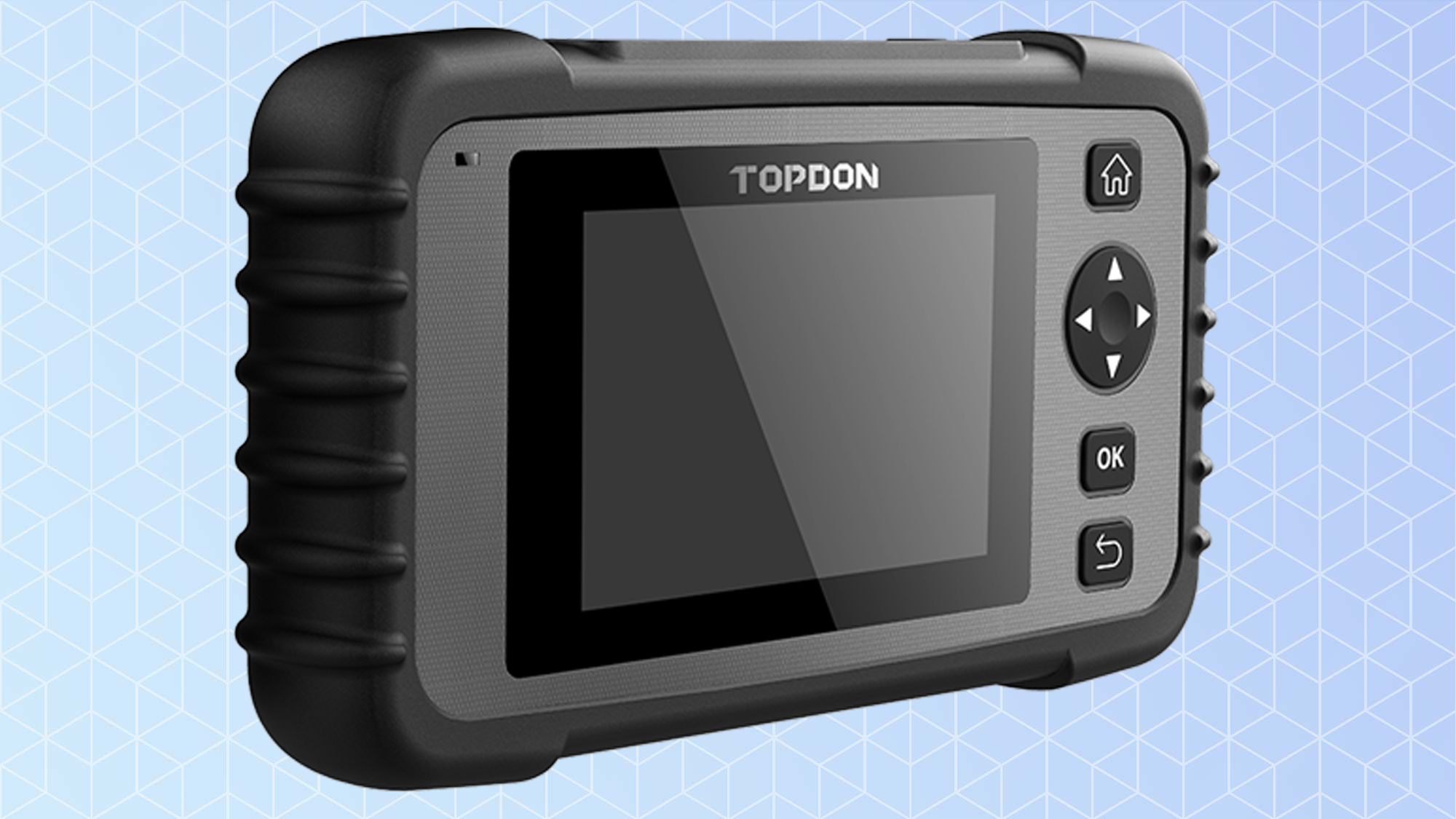
Despite inset grips in the back, the ArtiDiag500 can be cumbersome to hold in one hand. It comes with a padded case, but the scanner won't fit with its cable attached. Fortunately, it's easy to disconnect the cable when stowing the unit.
Looking like an overgrown portable gaming console, the ArtiDiag500 has a 5-inch horizontal color touchscreen that shows 1280 x 800 resolution and reliably responds to touches and swipes. It's significantly larger than the 4.3-inch non-touch screen on the other horizontal OBD-II scanner we liked, the Foxwell NT614 Elite.
Based on Android 7.1, the ArtiDiag500's software is icon-based and always displays a battery indicator in the upper left corner displaying the scanner's current charge level.
The main screen has sections for Diagnose, running a I/M pre-inspection test, OBD-II details and the vehicle's battery voltage. There are also icons for upgrading the scanner's system, looking at the raw data and making configuration changes in the settings.
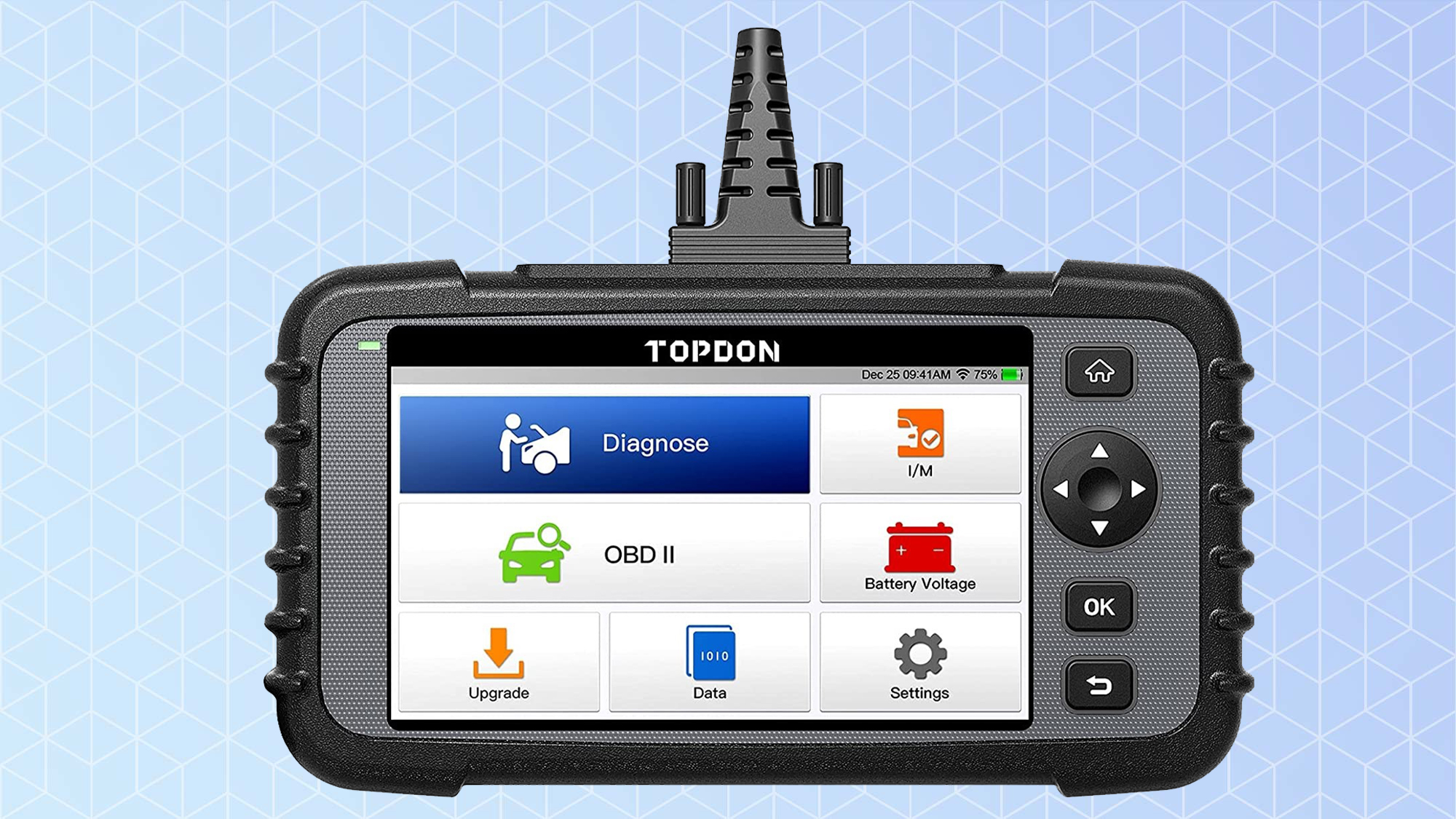
The ArtiDiag500's four-way navigation knob has an on/off switch as well as buttons for Home, OK and Go Back. But the touchscreen is a game changer for this class of OBD-II scanner. I found myself using the touchscreen more than the buttons.
The ArtiDiag500 can monitor the anti-lock brakes, airbags and battery, and also display and graph live car data.
The scanner's battery can power it when it's not connected to a car, but it requires a USB power source to recharge it; the device includes a USB cable but not an AC adapter.
Topdon ArtiDiag500 Performance
After I plugged the Topdon ArtiDiag500 into my car's OBD-II port, I started the scanner's innovative Automatic System Detection mode. It found a couple of things that needed my attention, showed me the vehicle identification numbers (VINs) for each of my cars and found the fault that I manually introduced (a disconnected oil-temperature sensor).
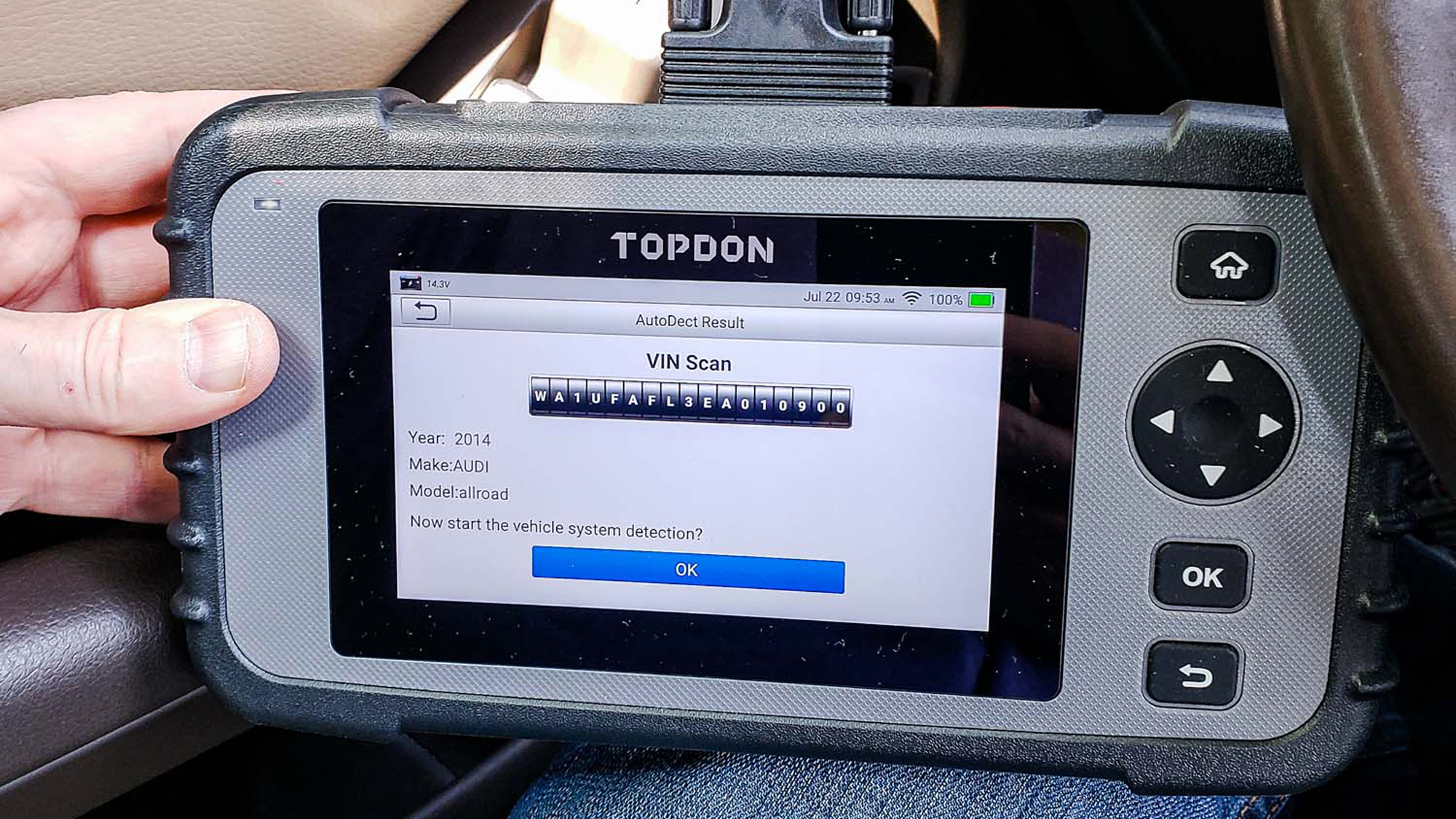
The ArtiDiag500's Health report took about 30 seconds to compile and showed me areas of potential major concern, such as the engine control computer or the ABS system. It also let me pick the categories for automatic scanning and turn off the oil maintenance light.
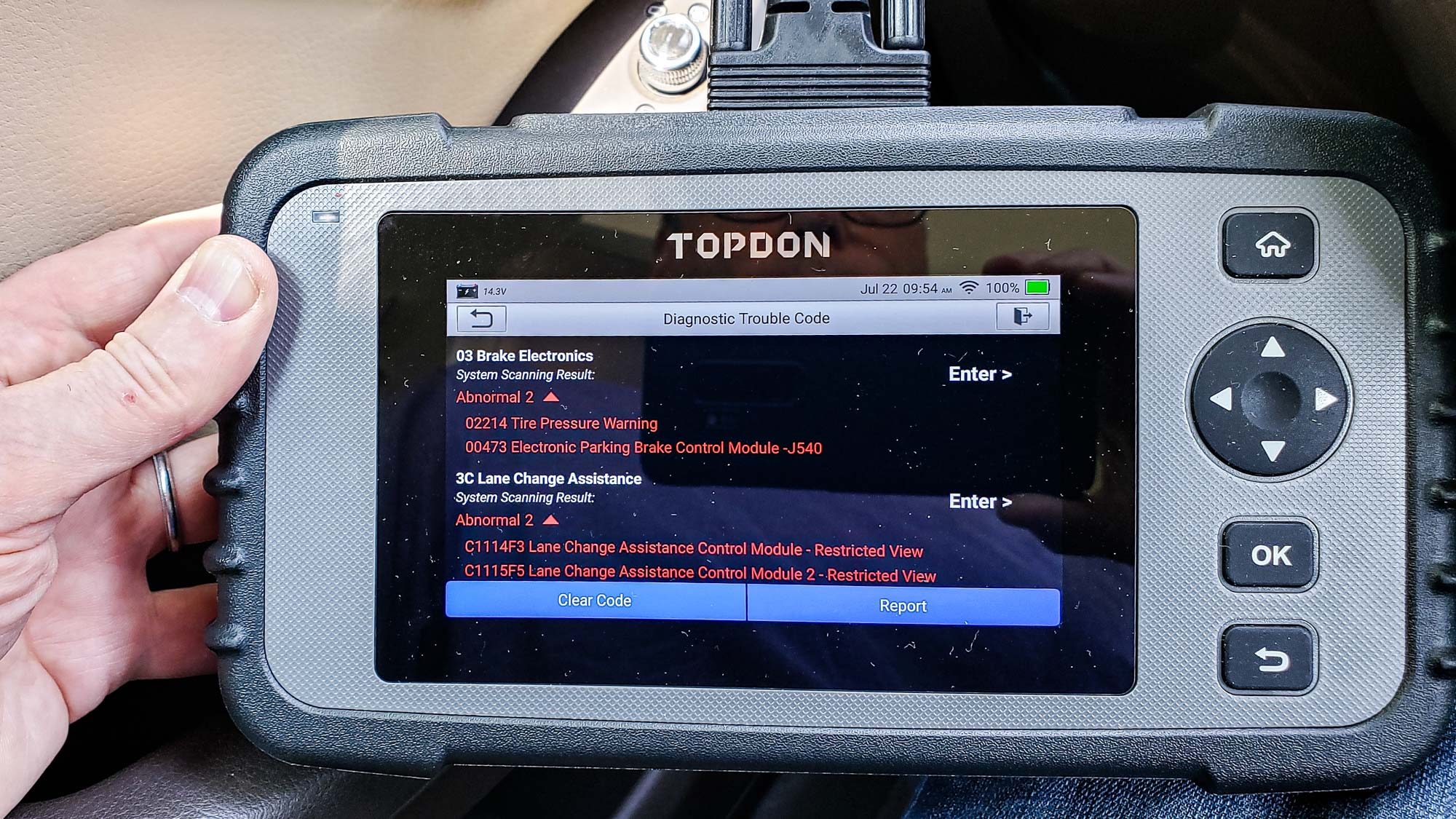
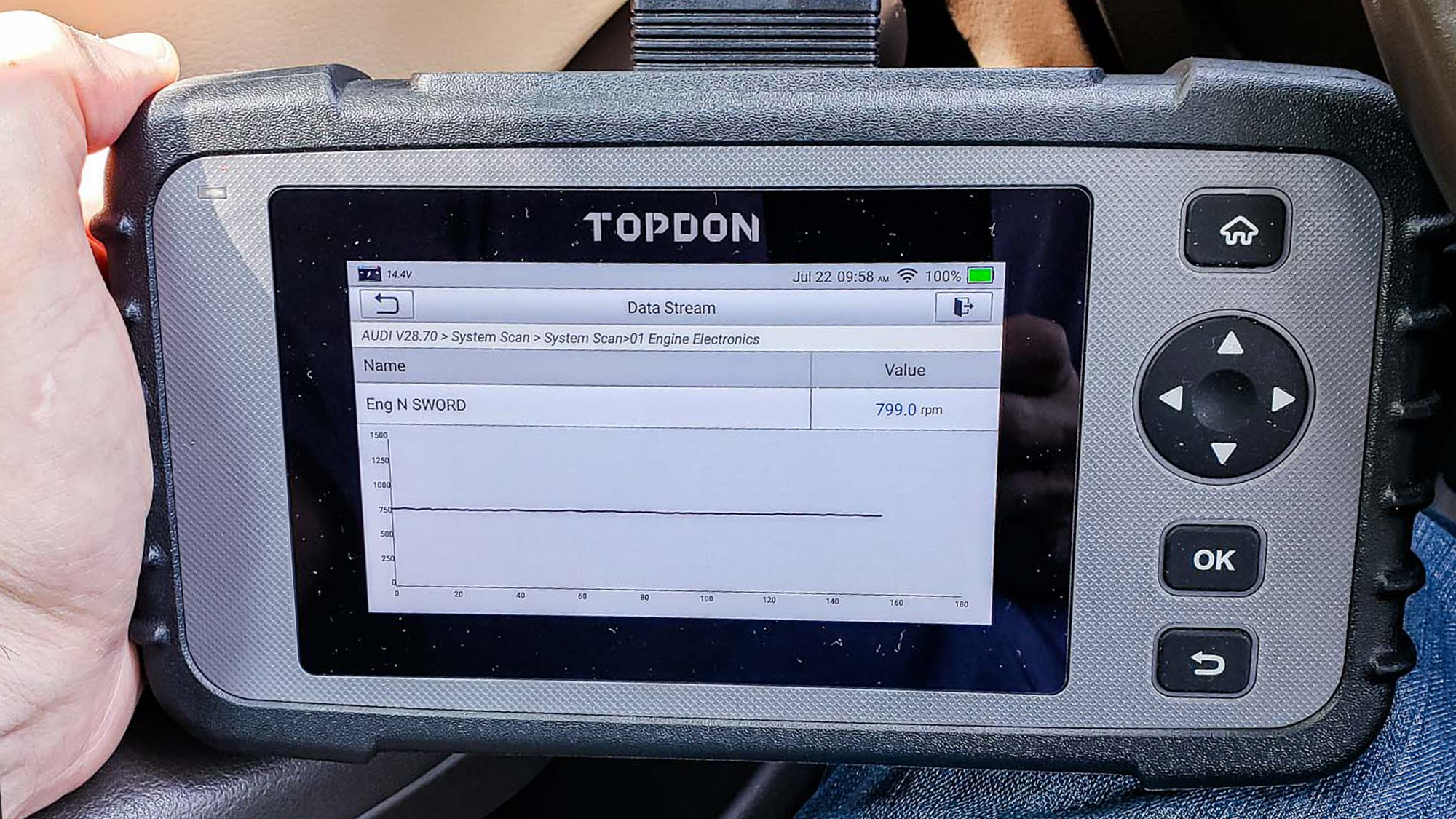
I was able to read the data stream from a variety of automotive sensors and colorfully graph them. Anything I retrieved could be sent as an email via the Wi-Fi connection. The Wi-Fi link is also for updating the system's software.
Topdon ArtiDiag500 Setup
Because of its Wi-Fi capabilities, the Topdon AritDiag500 took a few extra minutes to set up. After selecting my language, I needed to pick my Wi-Fi network and enter the passcode. It worked fine on my home's wireless LAN as well as on my phone's hotspot.
The ArtiDiag500 took roughly 20 seconds to link with my car, but with a cable of only 47 inches, it barely reached into the engine bay. However, it worked well with a third-party OBD-II extension cable.
The scanner comes with a short booklet that Topdon calls a User Manual but getting the most out of the scanner will require some trial and error. Its two-year warranty and lifetime updates go beyond the basic coverage that other scanner makers provide.
Topdon ArtiDiag500 Verdict
Topdon's ArtiDiag 500 offers an in-depth look inside any car's operations and does a lot for $170. Its excellent array of diagnostic tests, Wi-Fi connectivity and game-changing 5-inch touchscreen are held back by the ArtiDiag500's big, heavy and cumbersome case, as well as its too-short cable. Still, it's a lot of OBD-II scanner for the money.
Brian Nadel is a freelance writer and editor who specializes in technology reporting and reviewing. He works out of the suburban New York City area and has covered topics from nuclear power plants and Wi-Fi routers to cars and tablets. The former editor-in-chief of Mobile Computing and Communications, Nadel is the recipient of the TransPacific Writing Award.
